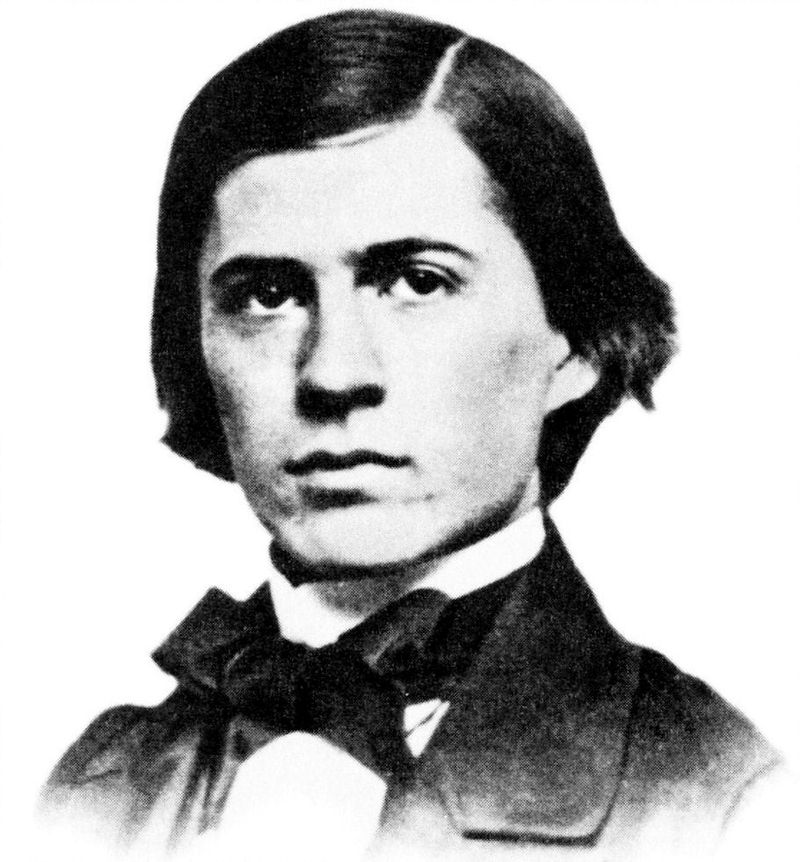TL;DR -- Our technology focus will get regular attention. Today, we mention the role that a cuz had in the development of some of the logic that drives computing, especially that which models complex systems. His family has been mentioned in several posts. It was time to feature CSP, himself.
---
This post is overdue and is motivated by current research related to the TGS, Inc. focus on technology is all of its aspects, particularly that which requires advanced computational support. We have had a few posts on the theme (results from search on 'technology' includes "How dumb is AI?"). As we have mentioned, our scope on this is a broad as is the Gairdner's handling of their medical research. The computer is more than merely ubiquitous, it's a phenomenal basis of sorts.
Too, we have featured a few individuals, so far. This year, we noted Emmy Noether for several reasons. We have looked at Jedediah Strong Smith and some military people, such as Gens. Worth, Greeley, and a lot more. We considered the lives of religious folks. This is a continuation of that thrust.
We mentioned Charles' father, earlier (see search results for "Charles Sanders Peirce", Benjamin is at the top). The early motivation was to focus on Thomas Gardner descendants, then we extended that to the collateral families. But, then, lots of in-law situations abound (that includes those events that lead to the "step" sibling). Then, we have friends of the family, such as Charles A. "Flagg" who worked with Dr. Frank on The Massachusetts Magazine.
The motivation? Poking around the bowels of mathematics and logic (and their children, ala computational modes) will be an imperative chore, forever. It's about time to recognize this. And, arguing 'black' box opacity? AIn't (our little icon for AI ain't) gonna happen that this is allowed. We can sit back and reverse engineer thinking and hypothesize. Eventually, we'll get close. It's guaranteed. Oh? You bet. This is where CSP comes in.
BTW, Wolfram's deal (his language and Mathematica and more) plus Lenat's several decades work (Cyc) are going to be on the plate as examples of how to do things. Anyway, Wolfram was, like everyone of late, reflecting on his long road. It was interesting that he used 'C' (the Bell Lab language) but worked sophisticated extensions (Lisp M-expressions). Part of Lenat's systems uses Lisp. There were good arguments for this approach. Wolfram was noting the logic modes that he supports (uses) and mentioned abduction. Well, CSP 'coined' that as he described sufficiently ways to work this (remember, he is from the late XIX century) so that Alfred North Whitehead was impressed, after the fact.
Strange names? We'll set up a site to handle these discussion. Here, we're noting that CSP does not have Thomas Gardner as an ancestor. There are links to WikiTree material, below. Too, TAG was one source. And, WT did additional research. We have not considered the specifics, yet, but will weigh in at some point. In the meantime, CSP is still cuz via other families.
Let's look at the guy through some bullets with comments.
- Charles Sanders Peirce - he worked in philosophy and mathematics. Actually, he was a true polymath. But, our interest in the beginning are his thoughts about things relating to cybernetics long before people even dreamt of control systems or computers. Then, he was a major force in several areas, with some thinking he was the greatest of American brains til then and probably a long time after. A. N. Whitehead, British mathematician, came to Harvard where he had access to CSP's material. There is an organization for him (The Charles S. Peirce Society).
- Pragmatism - Let's note what Stanford says: Encyclopedia article. There are many more to chose from.
- Mathematics - St. Andrews (UK) has a nice take on him. Lots of papers have been written on his work, but this one deals with his logic emphasis which lead to the conceptual/existential graph of Sowa.
There is technology related to genealogical studies (including those dealing with biological issues), but our focus on technology is across the board. Somewhat, we are pursuing a thrust dealing with truth engineering as being a necessity in the computer age. Nothing new here as the computer has been evolving for decades, now. It is more the case that how things unfold make the need obvious from certain viewpoints.
Looking at CSP's life show parallels with what we see now. In fact, one wit said that the 'whole family' was crazy (perhaps, jokingly); yet, dynamics related to knowledge and its use are not new to us. We just have the advantage (or misfortune) of being around when things got more gnarled than anyone thought could be.
---
Note: There will be more information, in the technical forum, about Wolfram (Mathematica) and Lenat (Cyc). The parentheses provide a link to their work via Wikipedia.
With respect to CSP, he and his wife had no offspring. So, they are on our growing list of those forgotten ones that we will pay attention to, going forward.
Remarks: Modified: 12/29/2022
12/29/2022 -- Added in pointer to the bibliography on Wikipedia, started in 2006. Benjamin was at Harvard (Class of 1829) and is listed as one of the few mathematicians from the USA in the XVIII Century. A cuz at Clark University has created a chronology of mathematics which will be useful for a quick look at the generational aspects.

No comments:
Post a Comment